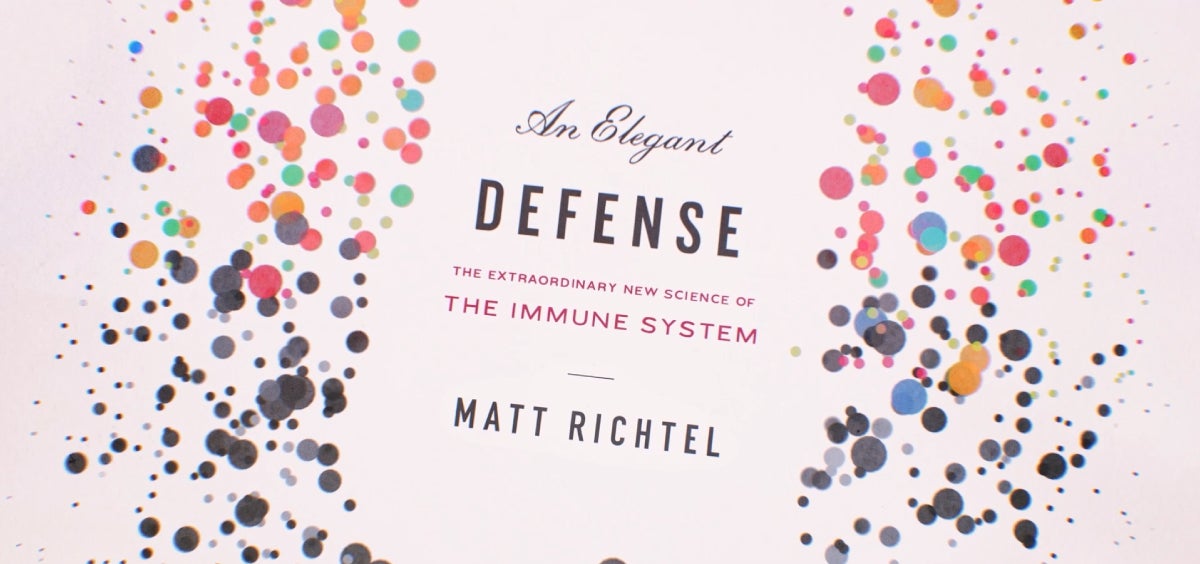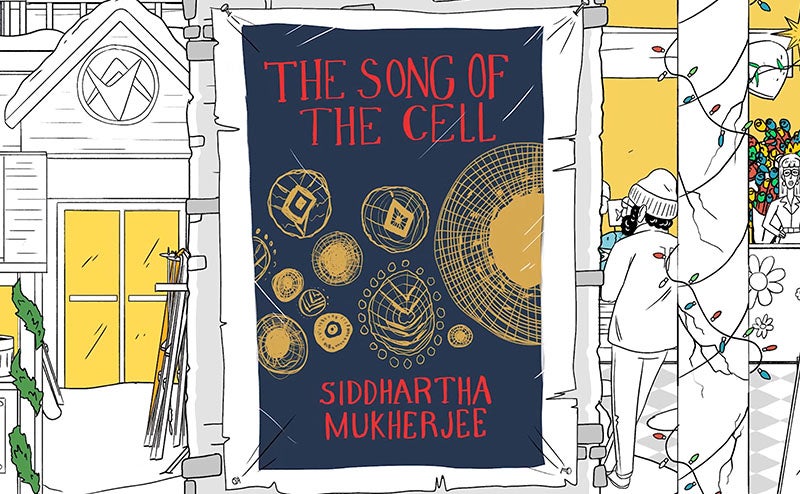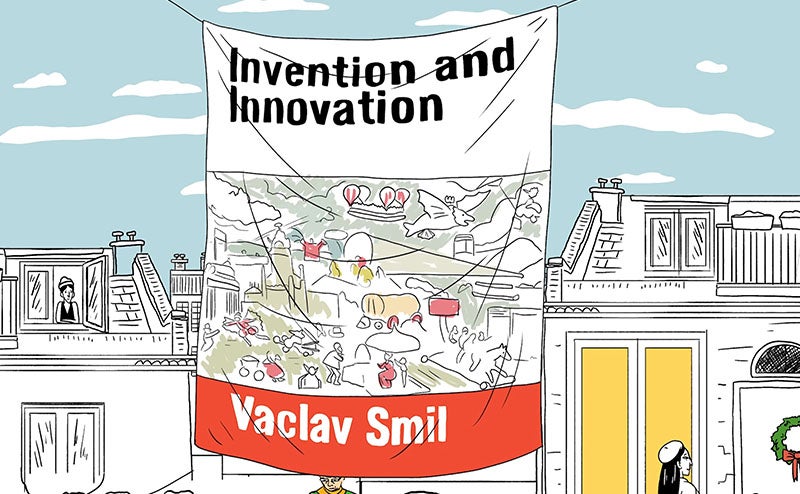To me, the ability of science to prevent and cure disease is magical—and the magic starts in places like the NIH.
The COVID-19 pandemic has sparked intense interest in and great questions about the immune system. Why would a virus kill some people while having little or no apparent effect on others—even those of similar age and background? What’s happening inside the body when it gets exposed to a novel virus? What happens when a vaccine gets injected into the arm? What is herd immunity? And so on.
If you’re asking these kinds of questions, you should pick up An Elegant Defense: The Extraordinary New Science of the Immune System, by Pulitzer Prize–winning New York Times reporter Matt Richtel. He wrote the book before the pandemic, which means there’s nothing here about COVID-19 or the virus that causes it. Nonetheless, Richtel’s timing was good, because his book gives you all the context you need to understand the science of immunity.
Even though I dropped out of college, I really enjoy reading textbooks. But I know most people who don’t have a degree in immunology prefer books with a story that brings scientific concepts to life. That’s exactly how Richtel constructs this book. He anchors it in the tales of four real people whose health challenges illustrate the immune system’s features and bugs. The most poignant of these is the story of Richtel’s lifelong friend Jason Greenstein, a traveling salesman who was diagnosed with Hodgkin’s lymphoma. (I came to know this form of cancer all too well when my friend and Microsoft co-founder, Paul Allen, was diagnosed with it while we were working together. He died in October 2018 of a different form of cancer.)
In the process of reading about the four people in An Elegant Defense, you absorb quite a lot of useful and interesting science. For example, you’ll learn about all the key components of the immune response … the ways pathogens can outsmart our defenses … how women’s heightened immune systems lead to longer life on average … how sleep, meditation, and exercise improve immune function … why the pursuit of immortality is a fool’s errand … and why following the “five second rule” for eating food that falls on the floor is actually a healthy thing to do.
Most important, you’ll come away with a much better understanding of our immune system’s awesome complexity—and the delicate, even precarious, tradeoffs inherent in its workings.
Millions of years of evolution have produced an immune system with multiple ingenious mechanisms for detecting and killing invaders, even ones it has never seen before. But seek and destroy is less than half of the story. Since the 1980s, immunologists have learned that the immune system is tuned to find a balance “between attacking and neutralizing real dangers and showing sufficient restraint such that its potency didn’t destroy the body,” Richtel writes. “This is what makes our defense so elegant.” In other words, evolution found a Goldilocks set point for the human immune system. When it’s working well, it’s aggressive enough to fend off most invaders but not so powerful that it’s constantly attacking its own cells.
One of the most exciting developments in all of science and medicine is our growing ability to tweak this balance in precise ways—an area I track closely and that Richtel covers well. In the course of telling the story of his friend Jason Greenstein’s cancer, Richtel describes effective new treatments that help our immune systems target our own cells that have gone rogue. Through the stories of lupus patient Merredith Branscombe and rheumatoid arthritis patient Linda Segre, Richtel helps us understand new drugs that tamp down the immune system for those who suffer from debilitating autoimmune disorders.
These treatments fall into a class of drugs known as “biologics,” which now make up more than a quarter of the entire pharmaceutical market. Traditional medicines are based on small molecules with relatively simple chemical structures. Biologics, in contrast, are derived from living cells and are much more complex in structure, making them expensive to manufacture and a big factor in the rising costs of health care. What makes them so appealing to doctors and patients is that they don’t go everywhere in the body; they target and modulate specific chemicals or cells at the core of the immune system’s responses. Therefore, they’re usually less toxic and more effective than traditional drugs.
The best-known example of this type of drug is Humira. I have friends who take it and describe it in glowing terms compared to other treatments they’ve been prescribed. It’s made up of synthetic antibodies that dial down the production of a protein that’s thought to be at the root of a dozen major autoimmune disorders, including Crohn’s disease and ulcerative Colitis. (Incidentally, the term monoclonal antibody, which includes drugs like Humira, is abbreviated “mab,” which is why the generic name of so many new drugs ends in that suffix. You’ll notice it in most of the pharmaceutical ads you see on TV or in print.)
We’re just at the beginning of the mab revolution. For example, as scientists develop ways to make monoclonal antibodies cheaper and easier to administer, they could help fight diseases that disproportionately affect people in poor countries. I’m also excited about their potential for sparking advances in treatments for Alzheimer’s disease, which my dad had for years before he died last fall. The immune system and the inflammation that it produces may well play key roles in neurodegenerative disease.
Back in simpler, pre-COVID-19 times, I read and reviewed Dr. Siddhartha Mukherjee’s The Gene: An Intimate History. An Elegant Defense left me with the same sense of awe I had when I read The Gene. I marvel over the intricacy and sophistication of the systems that make up the human body. Now that I’ve read , I have a deeper, more nuanced appreciation for the system that is at the core of humanity’s fight against COVID-19 and everything our foundation’s Global Health program is trying to do.





